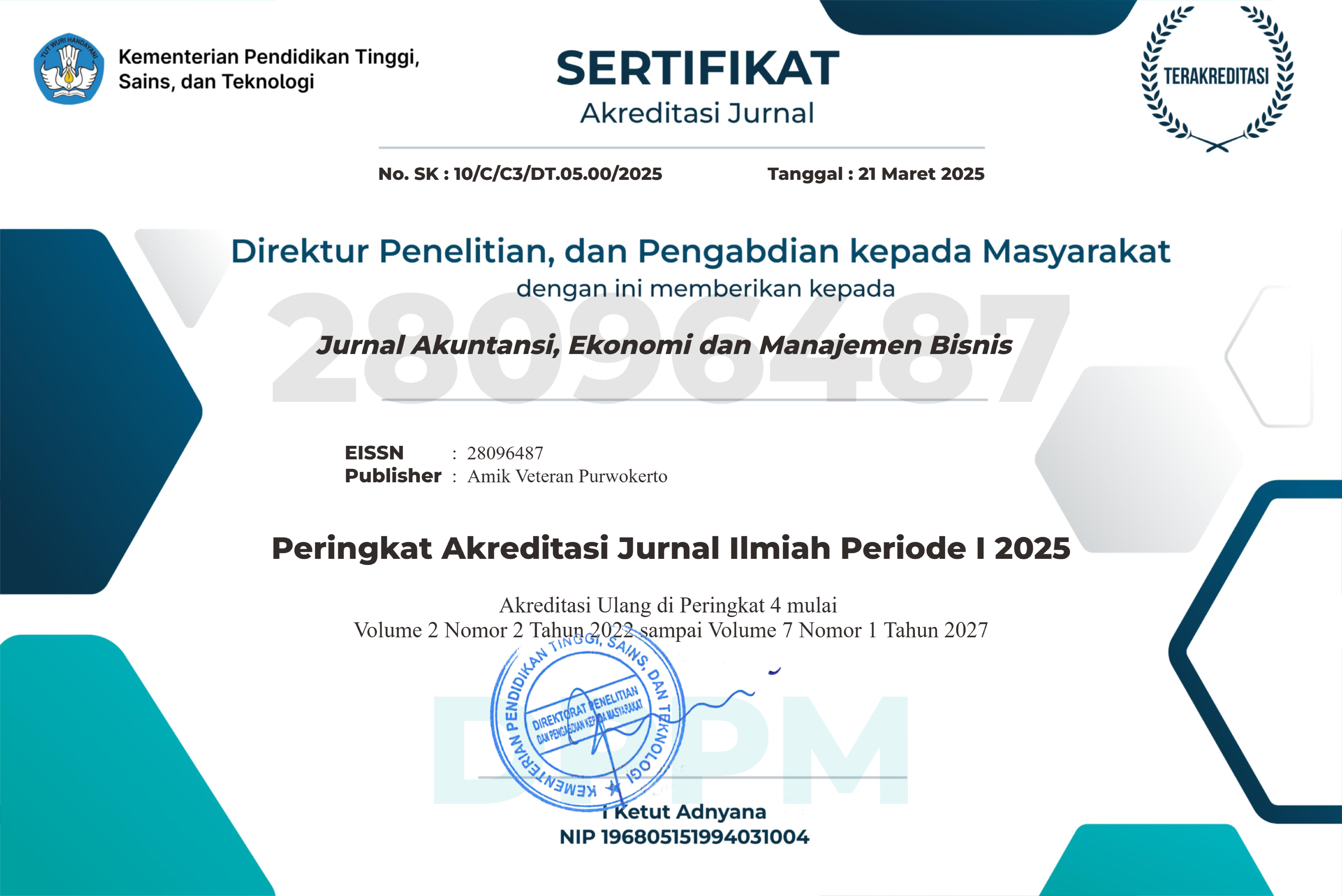Optimalisasi Pelatihan Dan Pengembangan SDM di Dunia Pendidikan: Peran Strategis Dan Tantangan Nyata
DOI:
https://doi.org/10.55606/jaemb.v5i2.6757Keywords:
HR Training, Competency Development, Education Quality, Innovative StrategyAbstract
Training and development of human resources (HR) in education has a very important role in improving the quality of education in the globalisation and digital era. This journal aims to thoroughly examine how the optimisation of training and human resource development can be done strategically, taking into account the existing challenges. Through a qualitative approach and literature review, this study identifies the importance of competency-based training planning, technology integration in HR development, and evaluation of the impact on education quality. The results of this study show that the implementation of innovative strategies such as blended learning, multi-stakeholder collaboration, and the establishment of a culture of continuous learning, can improve the effectiveness of training. This research is expected to make theoretical and practical contributions to education human resource management in Indonesia.
References
[1] Ali, H., &Limakrisna, N. (2013). Metodologi Penelitian (Petunjuk Praktis Untuk Pemecahan Masalah Bisnis, Penyusunan Skripsi, Tesis, dan Disertasi). Deepublish.
[2] Armstrong, M. (2020). Armstrong’s Handbook of Human Resource Management Practice (K. Page (ed.); 15th ed.)
[3] Darling-Hammond, L., Hyler, M. E., & Gardner, M. (2017). Effective Teacher Professional Development. Learn-ing Policy Institute.
[4] Fullan, M. (. (2014). The Principal: Three Keys to Maximizing Impact. Jossey-Bass.
[5] Glickman, C. D., Gordon, S. P., & Ross-Gordon, J. M. (2018). Supervision and Instructional Leadership: A Developmental Approach. Pearson.
[6] Guskey, T. R. (2002). Professional development and teacher change. Teachers and Teaching: Theory and Practice, 8(3), 381–391.
[7] Gusmian, I., Fitria, H., &Ningsih, D. (2023). Digitalisasi Pendidikan dan Tantangan Pengembangan SDM. Jurnal Administrasi Pen-didikan, 15(1), 55–67.
[8] Hadiono, D., & Subekti, M. (2020). Disparitas Pelatihan Guru di Daerah 3T. Jurnal Pendidikan Dan Kebudayaan, 25(3), 221–234.
[9] Hermawan, R., & Lestari, P. (2021). Efektivitas Model Blended Learning dalam Pelatihan Guru. Jurnal Teknologi Pendidikan, 23(2), 88–97.
[10] Hidayat, A. R. (2021). Relevansi Materi Pelatihan Guru dengan Kebutuhan Pembelajaran di Kelas. Jurnal Pendidi-kan Dan Kebudayaan,26(2), 101–112.
[11] Irawan, D. (2022). Analisis Kebutuhan Pelatihan Guru di Sekolah Dasar. Jurnal Pendidikan Guru, 9(2), 101–110.
[12] Kemendikbudristek. (2022a). Evaluasi Program Sekolah Penggerak dan Guru Penggerak Tahun 2022. Puslatdik Kemendikbud.
[13] Kemendikbudristek. (2022b). Modul Pelatihan Guru Penggerak. Dirjen GTK.
[14] Kementerian Pendidikan dan Kebudayaan. (2017). Permendikbud No. 16 Tahun 2007 tentang Standar Kualifikasi Akademik dan Kompetensi Guru.
[15] Lieberman, A., & Miller, L. (2008). Teachers in ProfessionalCommunities: Improving Teaching and Learning. Teachers College Press.
[16] Mahdum, M. (2020). emetaan Kebutuhan Pelatihan Guru Berbasis TNA. Jurnal Pendidikan Profesi Guru, 1(2), 55–62.
[17] Mirela, Tiarani., S. S. (2020). Pelatihan dan Pengembangan Sumber Daya Manusia dalam Lembaga Pendidikan Islam. Jurnal Mana-jemen Pendidikan Islam, 7(1), 44–54.
[18] Mulyasa, E. (2017). Manajemen Profesional Guru. Remaja Rosdakarya.
[19] Noe, R. A. (2020). Employee Training and Development (McGraw-Hill Education (ed.); 15th ed.).
[20] OECD. (2016). Supporting Teacher Professionalism: Insights from TALIS 2013. OECD Publishing.
[21] OECD. (2020). The Impact of COVID-19 on Education: Insights from Education at a Glance 2020. OECD Publishing.
[22] Robbins, S. P., & Judge, T. A. (2022). Organizational Behavior (19th ed.) (19th ed.). Pearson Education.
[23] Rosyidah, N., & Hadi, S. (2022). Evaluasi Program PKB Guru Berbasis Kebutuhan. Jurnal Ilmu Pendidikan, 27(1), 45–57.
[24] Sari, M., & Arifin, M. (2020). Analisis Pendanaan Program Pengembangan SDM Pendidikan di sekolah Dasar. Jurnal Manejemen Pendidikan, 12 (1), 33-41.
[25] Senge, P. M. (2006). The Fifth Discipline: The Art & Practice of The Learning Organization. Doubleday.
[26] Ulrich, D., Brockbank, W., Johnson, D., Sandholtz, K., & Younger, J. (2017). HR Competencies: Mastery at the Intersection of People and Business. SHRM
Downloads
Published
How to Cite
Issue
Section
License
Copyright (c) 2025 Jurnal Akuntansi, Ekonomi dan Manajemen Bisnis

This work is licensed under a Creative Commons Attribution-ShareAlike 4.0 International License.








